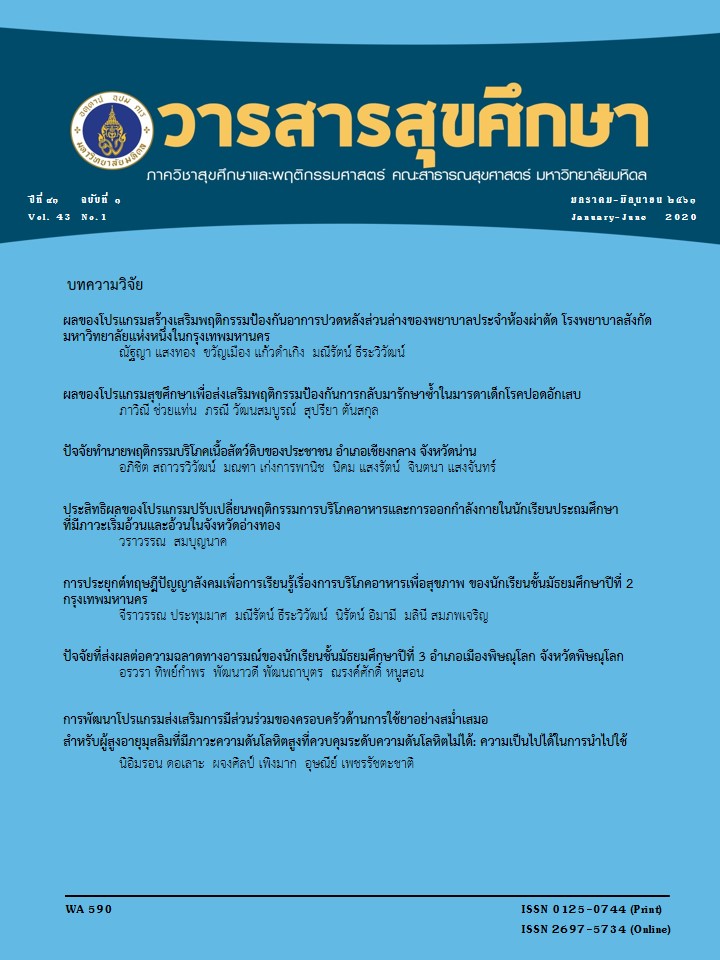The Application of Social Cognitive Theory for Healthy Food Consumption Learning of Grade 8 Students in Bangkok
Keywords:
Social Cognitive Theory, Healthy Food, Grade 8th StudentAbstract
Healthy food consumption is beneficial for body’s growth and health status. This quasi-experimental research was aimed to study of the effects of the application of social cognitive theory for healthy food consumption learning. The samples were consisted of 80 grade 8 students, 40 students in each of the experimental and the comparison groups. The experimentation was lasted for 9 weeks. The experimental group had participated in the healthy food consumption promotion program composing of the learning activities by : giving the lecture for enhancing knowledge about healthy food consumption; educational games for selecting and catering healthy food, brainstorming, practicing of easy and simple food preparation, and learning from the models who consumed healthy food. For the comparison the sampled students received the normal instructional activities of the school. Data collection was done by using questionnaire and data analysis was done by computing statistics in regard to frequency, percentage, arithmetic mean, standard deviation, Paired t-test and Independent t-test.
The research results showed that after participated in the program the experimental group had significantly higher levels of knowledge about healthy food consumption, perceived self-efficacy to consume healthy food, and appropriate healthy food consumption behavior than before the experimentation and than the comparison group (p<0.05). In conclusion, the healthy food consumption promotion program applying the Social Cognitive Theory in designing the learning activities was effective in increasing knowledge and perceived self-efficacy to consume healthy food, and had appropriate food consumption behaviors of grade 8 students. Therefore, educational institutions and health service organizations can apply this program for organizing learning activities on healthy food consumption for secondary school students and other group of students who have similar characteristics as of the sampled grade 8 students in order to promote appropriate food consumption behavior for student’s better health.



